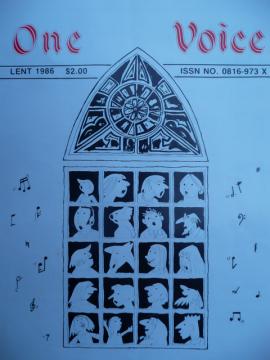
May the God of steadfastness and encouragement grant you to live in harmony with one another, in accordance with Christ Jesus, so that together you may with one voice glorify the God and Father of our Lord Jesus Christ. (Romans 15:5-6, NRSV)
'Church music' is a term that arouses a very wide range of expectations. Some will hear Kyries, some choruses, some Crimond or Cwm Rhondda. But the diversity doesn't stop there.
Many will embrace church music as the gift of fuller participation in worship. Others will value it as a storehouse for their Christian knowledge (in the form of hymns particularly) to which they return again and again for energy and direction.
Others again will see church music principally as a weapon for evangelism, or as a way of demonstrating the relevance of the Gospel.
In some cases, even, church music acts (unwittingly perhaps) as a badge of moral or aesthetic superiority. to others still it is a cocoon of memories, a nostalgic reaching back to safer times.
There are many good and bad reasons why we prefer the music we do, but there is no denying its variety, the great diversity of timbres in the 'one voice' of the church at worship.
These pages are for all who sing – in choirs, congregations and praise groups; those who play organs or other instruments; those who plan and lead the music of the local church in whatever capacity; those who write and those who choose music, songs and hymns for worship, including ministers and clergy; and all those with a general interest in how the Church worships and what it sings and has sung through all generations.
From the editorials in the first issues of One Voice, an Australian church music magazine now ceased publication, and Different Voices, a Scottish church music magazine which appeared in print from 2008 until 2011. The title now continues as an online resource from the Church of Scotland; see
http://www.churchofscotland.org.uk/worship/music_for_worship
